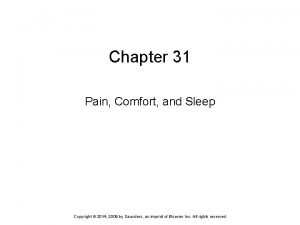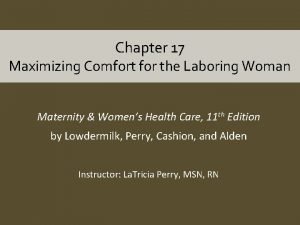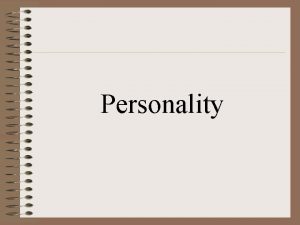Chapter 3 Personality and Comfort Zones Comfort Zones







- Slides: 7

Chapter 3: Personality and Comfort Zones

Comfort Zones • Range of comfortable behavior often holds people back • People often limit their options out of fear of disapproval from themselves or others • Fear of success – People may sabotage their own efforts because they are unable to handle success and are afraid to step out of their comfort zones • Fear of failure – People limit themselves because they fear they will not succeed

Playing the Victim • Some people have a perpetual “poor me” attitude. • Elephant-in-the-Bottle Syndrome – Trying to take all of the negative events that you had some part in and cram them into an area that constitutes being a real victim • Leaf-in-the-Wind Theory – Some people behave as though they have to go through life being blown about by the winds of change without exerting control over their own situations • Captain-of-Your-Ship Theory – Asking yourself how you got into a situation in order to avoid it in the future

True Victimization • While some people play the victim role, others are actual victims. • It is inappropriate to make actual victims accountable when certain situations are unavoidable. • When individuals have no control over their situations, it may help to ask two questions: 1. What is the lesson for me from this event? 2. How can I give this situation meaning?

7 Habits of Highly Effective People 1. 2. 3. 4. 5. 6. 7. Be proactive Begin with the end in mind Put first things first Think win-win Seek first to understand, then be understood Synergize Sharpen the saw

Big Ideas • We all have comfort zones in which we operate. Expanding your comfort zone requires taking risks, but doing so will give you greater choices and options in life.

Big Ideas (cont. ) • Fear of failure and fear of success are limiting beliefs that keep us in our comfort zones. • There are perceived benefits from playing the victim role, but becoming more accountable for the consequences of your behavior will be more beneficial in the long run.













